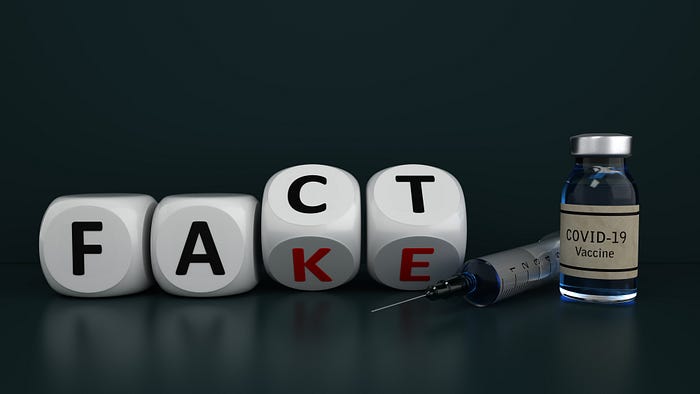The Covid Vaccine Story Inspires Hope in a Pandemic-Wracked World

The furor over a whistleblower’s accusations that Facebook profits from allowing its platform to spread disinformation has spotlighted the role of social media in propagating falsehoods online. A prime example is how such untruths hamper the fight against the Covid-19 pandemic.
However, adversity can be a rich source of opportunity, and humanity’s response to the pandemic offers hope for the future and a way to curb the spread of falsehoods.
As I argue in my new book, A Shot in the Arm — How Science, Engineering, and Supply Chains Converged to Vaccinate the World (MIT CTL Media), the key is improving the “knowledge supply chain” through education and unbiased information.
Blueprints for crisis management
We are awash with stories about the dark side of the pandemic. But there are uplifting stories too, especially the one about the development and distribution of the Covid-19 vaccine.
In A Shot in the Arm, I tell the tale of how bold innovation, risk-taking, and interdisciplinary teamwork produced revolutionary vaccines and delivered them to the world. It’s an inspiring journey that I characterize as the greatest product launch in history. The story has been likened to a moonshot, but I believe that landing men on the moon is, in some sense, the easier of the two epic journeys. The Apollo mission teams built a dozen or so rockets to transport astronauts to a single destination; Covid vaccine mission teams manufactured billions of doses of a complex medication from a standing start, and delivered them to billions of people worldwide.
These incredible accomplishments have also left us a unique legacy: mRNA vaccine technology that could spawn transformative innovations in various fields including medicine and agriculture, and models for combatting other global threats such as climate change. In the words of my book: “Human civilization has created a three-layer foundation — science, engineering, and supply chains — for tackling big global problems.”
Rebuilding and reinforcing trust
Each part of this triumvirate has created ways to meet global challenges. The world’s 8.8 million scientists have developed measurement and data-gathering methods that can be used to create new comprehensive knowledge to address challenges such as poverty, food and water insecurity. Engineers know how to turn this trove of scientific knowledge into workshop prototypes and factory designs that underpin global networks of manufacturing organizations. Globe-spanning supply chains convert the planet’s bounty into all the goods and services used by its 7.8 billion consumers — and support the world’s manufacturing and retail operations.
However, disinformation in this knowledge-driven world can create a serious risk of squandered resources and tragic outcomes (such as avoidable coronavirus-related deaths).
One of the most alarming trends made clear during the pandemic is the mistrust of science and scientists. Such mistrust stems from two sources: (1) misunderstanding the scientific process and (2) the politicization of scientific conclusion and recommendations. The first point is based on the notion that, by and large, we like to think about science as the arbiter of truth. However, the process of arriving at a scientific truth, especially regarding new phenomena, involves limited and sometimes biased data, leading to competing interpretations and narratives. As more data is collected and analyzed and more hypotheses are proved wrong, a general consensus of truth emerges. The scientific eco-system of peer-reviewed publications, repeatable experiments, and disclosure of conflict of interest helps the convergence to a truth. (Unfortunately, once an agreed-upon scientific consensus emerges, the process of challenging it is much more difficult.) Thus, pointing out a scientist’s previous different conclusion that was subsequently changed as more data and analysis became available is irrelevant.
The second problem is the politicization of science. As I mention in my book, a week before his election to the US presidency, Joe Biden tweeted: “I believe in science, Donald Trump does not, it’s that simple, folks.” If only it were that simple. British writer Donald Ridley contends that the pandemic highlighted the disconnect between science as an idealized philosophy and science as a human institution. The former represents the “primacy of rational and objective reasoning.” The latter, like all human institutions, is subject to political dogma, human needs and wants, and can be erratic and prone to failures.
The first issue — the misunderstanding of the scientific process — can be mitigated by education and repeated explanations. The second issue — the polarization and politicization of science — puts a heavy burden on scientists not to color their recommendations or opinions in order to serve their political masters. Pandering to politicians harms scientists’ reputations and, more importantly, erodes people’s trust in science.
Most non-scientists get their knowledge from people they trust, be it religious leaders, political leaders, the media, or scientists. Hence, in matters of science, it is important to make sure that scientific debates are open and allow all points of view to be aired, leading to an eventual convergence to a conclusion.
It may be difficult to stop the distribution of untruth and conspiracy theories. However, careful messaging from scientists and education regarding the progress of science can minimize the number of people that fall prey to disinformation.
Lemonade from lemons
While in no way diminishing the pandemic’s catastrophic impact on the world, let us take lessons like the ones described above from the crisis and use them to build a better future. Moreover, as each challenge is tackled, we add to the arsenal of countermeasures that the knowledge supply chain delivers, thereby improving our ability to overcome extreme adversity.
A Shot in the Arm is available from Amazon, Google Play, and Apple Books.

